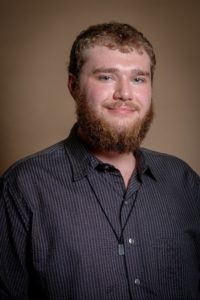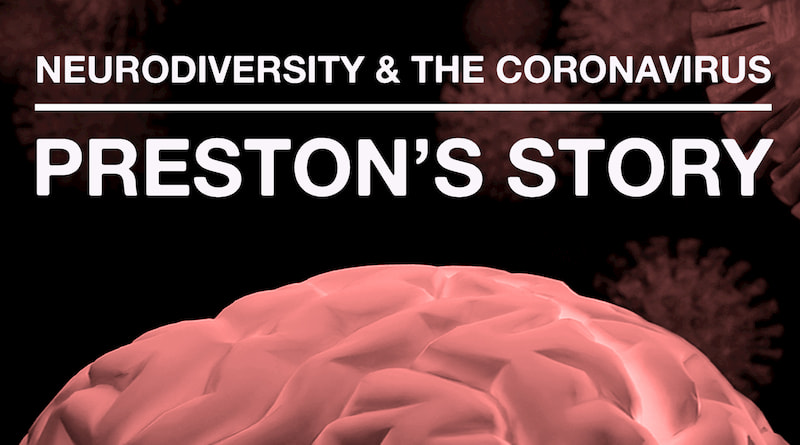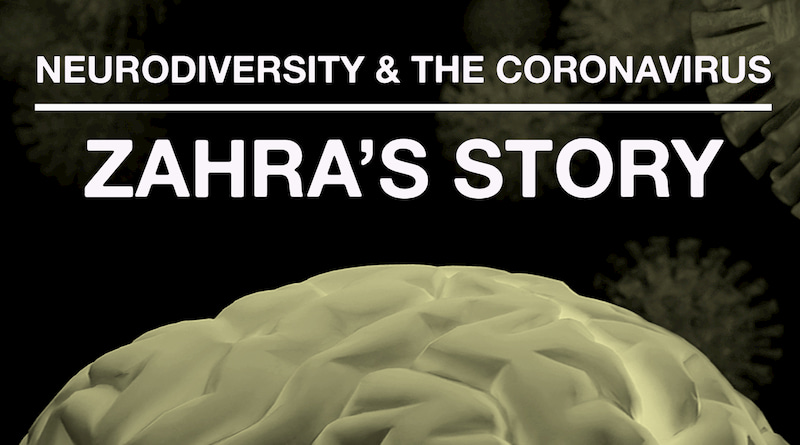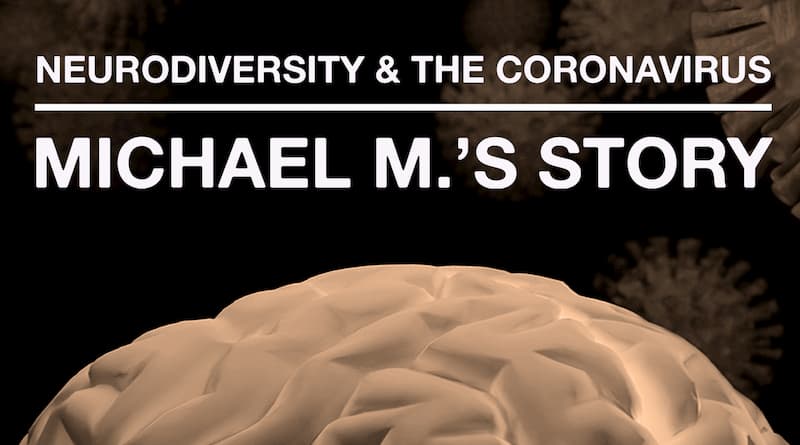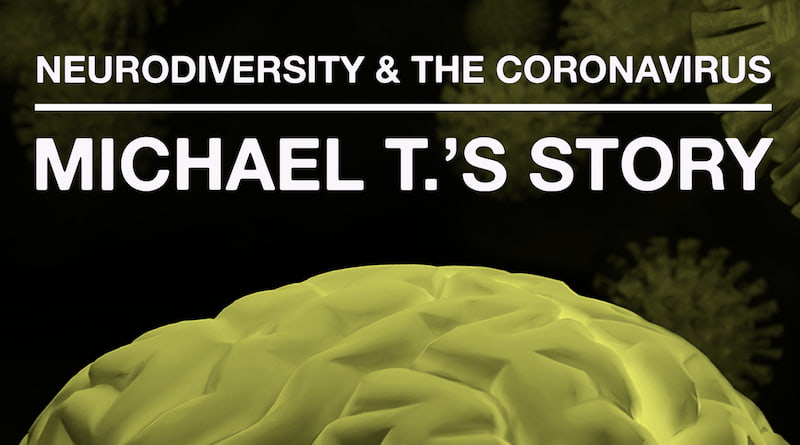
The Coronavirus Pandemic: Michael T’s Journey With Misophonia
The Pandemic: Michael T’s Story:
About the Author:
Michael A. Tollefsrud is a 25-year-old graduate of North Carolina Central University with a Master’s Degree in General Psychology with research interests in emotion, perception, and Emotion & Cognition Interactions. Having suffered from Misophonia for years, Michael made it the focal point of his master’s thesis “obsessed with sound: An Investigation into Misophonia And Its Relation To Memory”. Currently looking for work in research, Michael plans to pursue a Ph.D. To and continue to contribute to Misophonia research. In his spare time, Michael enjoys kayaking, video games, and all things Doctor Who.
Life Before the Pandemic:
Q: Describe your everyday life before the pandemic hit. Include social aspects such as work, school, extracurricular activities, or spending time with friends.
A: Before the pandemic hit, I was finishing up my last semester of grad school and I had just completed my master’s degree of experimental psychology. My daily life mostly consisted of me going to class and then sitting at my desk for hours at a time, working on my thesis about the impact of misophonia on recall memory. Really, what most of my day-to-day was before the pandemic hasn’t changed too much because it was just me sitting at my desk working on schoolwork and stuff [for Different Brains…] I didn’t work while I was in school, so most of my social interactions were with colleagues. On the occasional weekend, I hung out with friends. Most of the time, I was kind of isolated because of all the work I had to do.
Reacting to COVID-19:
Q: Describe how you initially reacted to COVID-19 and the social distancing.
A: I didn’t know how to react. It took me a long time to connect that it was actually real. I had barely heard of it until around March. I heard whispers of it, but it wasn’t really on my radar until near the end of spring break. My school emailed everyone that they’re extending spring break for a week because of the coronavirus. That’s when it actually hit me that it’s kind of a big deal. As far as my reaction to it, it was kind of detached at first because it was hard to tell how big of a deal it was going to be. So, at first, I wasn’t that impacted by it. I was just like, “Oh, I’ve got an extra week of spring break.” It didn’t really register to me as real until I went grocery shopping, all the shelves were cleared, and everyone was wearing a mask. It just kind of felt like one of those apocalypse movies: this isn’t the kind of thing that is supposed to happen in our lifetime. This is like plague stuff that you hear about from history class.
Life Changes & Adaptations:
Q: In what ways did your life and schedule change as a result of the coronavirus?
A: The biggest change was probably not going back on campus. All of my classes went online and my graduation was online, so somehow, I ended up being even more stuck inside. Before, I could at least go out and walk around at the mall or something every couple of days or go out to eat, but everything was locked down. I was literally just in my house all the time. I never left the house basically. I still try not to, but I’ve got a job as a pizza delivery guy, so I do get around now, but at least I’m being productive with it and not just getting out to get out… I wear a bunch of gloves, I have a big bucket of hand sanitizer in my car, and I’m always wearing an N-95 mask when I do my errands, so I always take all the precautions that I can.
Q: What have you had to do in order to adapt to these circumstances?
A: What’s funny is, my lifestyle before kind of prepared me for this. Like I said, I spent a lot of time indoors in one place anyways because that’s what I had to get my schoolwork done. The only real adaptation [for me] was being a lot more cautious when I go out to get groceries. I have to be more strategic about when to avoid crowds and what not. It was just a lot more cleaning and a lot more masks.
Misophonia & The Coronavirus:
Q: If you are neurodiverse, how has the coronavirus affected your condition(s) and/or has your condition(s) affected how you’re dealing with everything?
A: I have misophonia, which is a condition where people have extremely negative reactions to specific sounds, more commonly, to people eating. As far as the impact that COVID has had on my misophonia, it depends on how stressed I am about the whole situation. Misophonia symptoms tend to get worse when you’re under stress, so in some circumstances, it’s made it a bit worse. I’m currently living with my parents because I graduated and my pizza run is not making the money I need to have my own place, but I have my own space here so it’s not that big of a deal. They’re all used to dealing with my misophonia and we’ve gotten over that years ago to work with me on that, though the actual reactions may have gotten more intense than they usually would be, depending on how stressed out I was about the whole situation. In a way, it’s also been better because there’s been a lot less opportunities to be exposed to triggers, so I guess, in a funny way, it could be a bit beneficial for my misophonia in some respect [to be locked down in my parents’ house due to the coronavirus] even if the cost is a bit steep.
Coping With Change:
Q: What coping mechanisms are you using in order to deal with these strange times?
A: All of my coping mechanisms were things I did for anxiety in general. I’m really big into mindfulness meditation to help with my anxiety, so I bumped up doing that each day. I also started working out because my parents have a bunch of workout equipment in the garage, so since I’m stuck at home with nothing else to do, I decided to incorporate that into my daily routine. That actually helped because exercise helps with stress, mood, and all the other health benefits. I’ve also been watching a lot of comedy specials and things that help cheer me up when I read the news and see the new bad thing this year has brought us. I flip over to the comedy because I’ve always found it to be really helpful in getting through really difficult situations.
Life Lessons & Advice:
Q: What are some of the things you’ve learned about yourself and the world around you from these circumstances?
A: About myself, I guess it turns out I miss being around people a lot more than I thought I would because I’m an introvert, so I don’t usually go out to clubs or anything, but after a couple months of this nonsense, I’ve been aching to go to a big gathering and hang out with people. I learned that I like people a lot more than I thought I did. About the world around me, we’re a lot more connected than we think we are. The whole world just kind of stopped and you see the impact that [the coronavirus] has had, and it kind of reminds me how dependent everyone is on each other. You don’t really think about that usually, until it’s in front of your face like that.
Q: What advice would you give to someone like yourself or to anyone that’s having a difficult time dealing with the coronavirus?
A: For someone who has misophonia, it’s going to depend on their living situation because if you can’t really get away, that’s going to be a bit of a challenge. It also depends on what their usual coping mechanisms are for that specifically. I’d probably just say, if they can invest in a good pair of headphones, then you can block out the sounds. A big, general piece of advice would be to find some tasks to distract yourself with, find good comedy to listen to, find something to keep you busy and like to do instead of ruminating on what’s going on. Of course, what you can do is going to be dependent on other situations… Make it feel like you’re accomplishing something, especially if you’re used to constantly working but are out of work because of COVID or anything like that. I found it makes things a bit easier.
Story by: Michael T.
Interviewed by: Julia Futo
Interviewed on: December 22nd, 2020
Julia Futo was born on August 5th, 1999, in Fort Lauderdale, Florida. She faced difficulties early on in life with trying to perform everyday tasks. Before she was five years old, she was diagnosed with two learning disabilities: Encephalopathy and developmental coordination disorder (DCD). She struggled in school for a long time, but that changed when she took journalism in high school and learned how to become an advocate. She is currently in college and hopes to help others find their voices.

